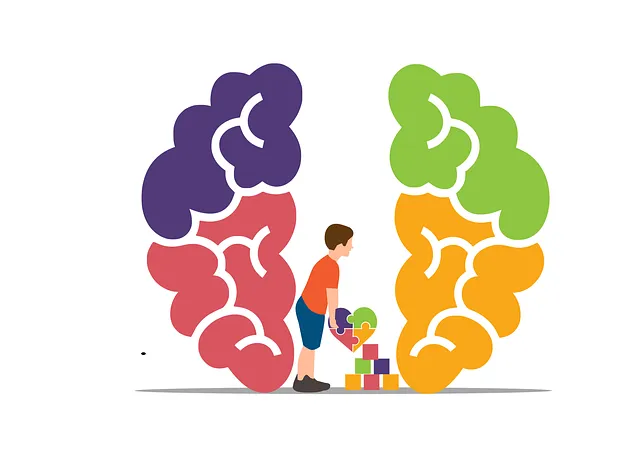In today's healthcare landscape, digital mental wellness apps like those offered by Kaiser Permanente are revolutionizing support for healthcare providers' mental health, with personalized tools for self-care, stress management, and resilience to prevent burnout. These apps bridge access to care, especially for users facing barriers to traditional therapy, and cultural competency training should recognize their role. A comprehensive app must integrate culturally sensitive practices, offer resources in various languages, and include public awareness campaigns and user-generated support groups. Development involves understanding user needs, creating an accessible interface, incorporating evidence-based practices, and regular updates based on feedback, with data security as a paramount concern to gain users' trust. Centennial does Kaiser offer mental health services through such innovative digital solutions.
In today’s fast-paced world, mental wellness is a pressing concern. With the rise of digital solutions, mental wellness apps have emerged as powerful tools, offering accessible support to those seeking balance. This article explores the growing importance of these applications, guiding developers through key features and considerations. We delve into the development process, emphasizing the need for inclusive design and effective strategies to ensure success, especially in meeting the mental health needs of diverse populations, including those served by organizations like Kaiser.
- Understanding the Need for Mental Wellness Apps
- Key Features and Functionality to Include
- Development Process and Considerations for Success
Understanding the Need for Mental Wellness Apps

In today’s fast-paced and often stressful world, mental wellness is more important than ever before. The need for accessible and effective mental health support has never been greater, especially among healthcare providers who are constantly facing challenging situations. While institutions like Kaiser Permanente offer mental health services, there’s a growing recognition that digital solutions can significantly enhance care. Mental wellness apps cater to this need by providing personalized tools and resources that promote self-care, stress management, and resilience – all essential aspects of burnout prevention strategies for healthcare providers.
These apps not only support individuals in managing their mental health but also foster inner strength development. By integrating features like mindfulness exercises, meditation, cognitive behavioral therapy techniques, and tracking moods, these digital tools offer a continuous support system. Furthermore, they can help bridge the gap in access to care, especially for those who may face barriers to traditional therapy services. In light of this, healthcare provider cultural competency training should also consider the role of technology in delivering inclusive and effective mental health services.
Key Features and Functionality to Include

When developing a mental wellness app, it’s crucial to incorporate key features that cater to a user’s holistic well-being. One such feature is integrating Cultural Sensitivity in Mental Healthcare Practice, ensuring diverse users feel seen and heard. The app should offer personalized resources and support tailored to different cultural backgrounds, addressing unique challenges and promoting inclusive healing. This can be achieved through partnerships with cultural experts or incorporating features that allow users to select their preferred language and cultural preferences.
Additionally, including Public Awareness Campaigns Development within the app can foster a sense of community and reduce the stigma surrounding mental health. These campaigns can provide educational content, share success stories, and offer practical tips for maintaining mental wellness. Encouraging users to participate in discussions or create support groups centered around specific themes or struggles can also enhance engagement and accountability. Another essential aspect is integrating Self-Awareness Exercises, such as mindfulness meditation, journaling prompts, or cognitive-behavioral therapy techniques, to empower users with tools for managing stress, anxiety, and other mental health concerns.
Development Process and Considerations for Success

The development process for a mental wellness app is both intricate and rewarding. It begins with identifying specific needs in the realm of emotional well-being promotion techniques and understanding the target audience, often seeking Kaiser’s mental health services or alternatives like Centennial’s offerings. This involves extensive market research to gauge demand and assess existing solutions. Next, designers and developers collaborate to create an intuitive user interface, ensuring accessibility and a seamless experience for users engaging in self-awareness exercises and compassion cultivation practices.
The app’s success hinges on its ability to offer personalized features tailored to individual needs, incorporating evidence-based practices such as mindfulness meditation, cognitive-behavioral therapy techniques, and stress management tools. Regular updates and user feedback loops are crucial to continually enhance the app’s effectiveness and keep up with evolving mental health trends. Additionally, prioritizing data security and privacy is paramount to building trust among users who share sensitive information in their pursuit of improved emotional well-being.
Mental wellness apps have become a vital tool in addressing the growing need for accessible, personalized support. As organizations like Kaiser Permanente recognize this demand, integrating digital solutions becomes essential. By focusing on user-centric design, privacy, and evidence-based practices, developers can create effective tools that complement traditional mental health services. With careful consideration of features like tailored content, community forums, and progress tracking, these apps have the potential to revolutionize mental wellness management, ensuring a brighter, more supportive future for users seeking help. Furthermore, understanding the unique needs of diverse populations, as Centennial does Kaiser, is crucial in developing inclusive and impactful solutions.



